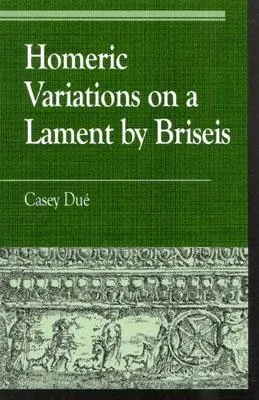Casey Dué
(Author)Homeric Variations on Lament by BriseisHardcover, 21 May 2002

Qty
1
Turbo
Ships in 2 - 3 days
In Stock
Free Delivery
Cash on Delivery
15 Days
Free Returns
Secure Checkout

Part of Series
Greek Studies: Interdisciplinary Approaches
Part of Series
Greek Studies: Interdisciplinary Approaches (Hardcover)
Part of Series
Greek Studies
Print Length
240 pages
Language
English
Publisher
Rowman & Littlefield Publishers
Date Published
21 May 2002
ISBN-10
0742522180
ISBN-13
9780742522183
Description
Product Details
Author:
Book Format:
Hardcover
Country of Origin:
US
Date Published:
21 May 2002
Genre:
Ancient (To 499 A.D.)
ISBN-10:
0742522180
ISBN-13:
9780742522183
Language:
English
Location:
Lanham, MD
Pages:
240
Publisher: